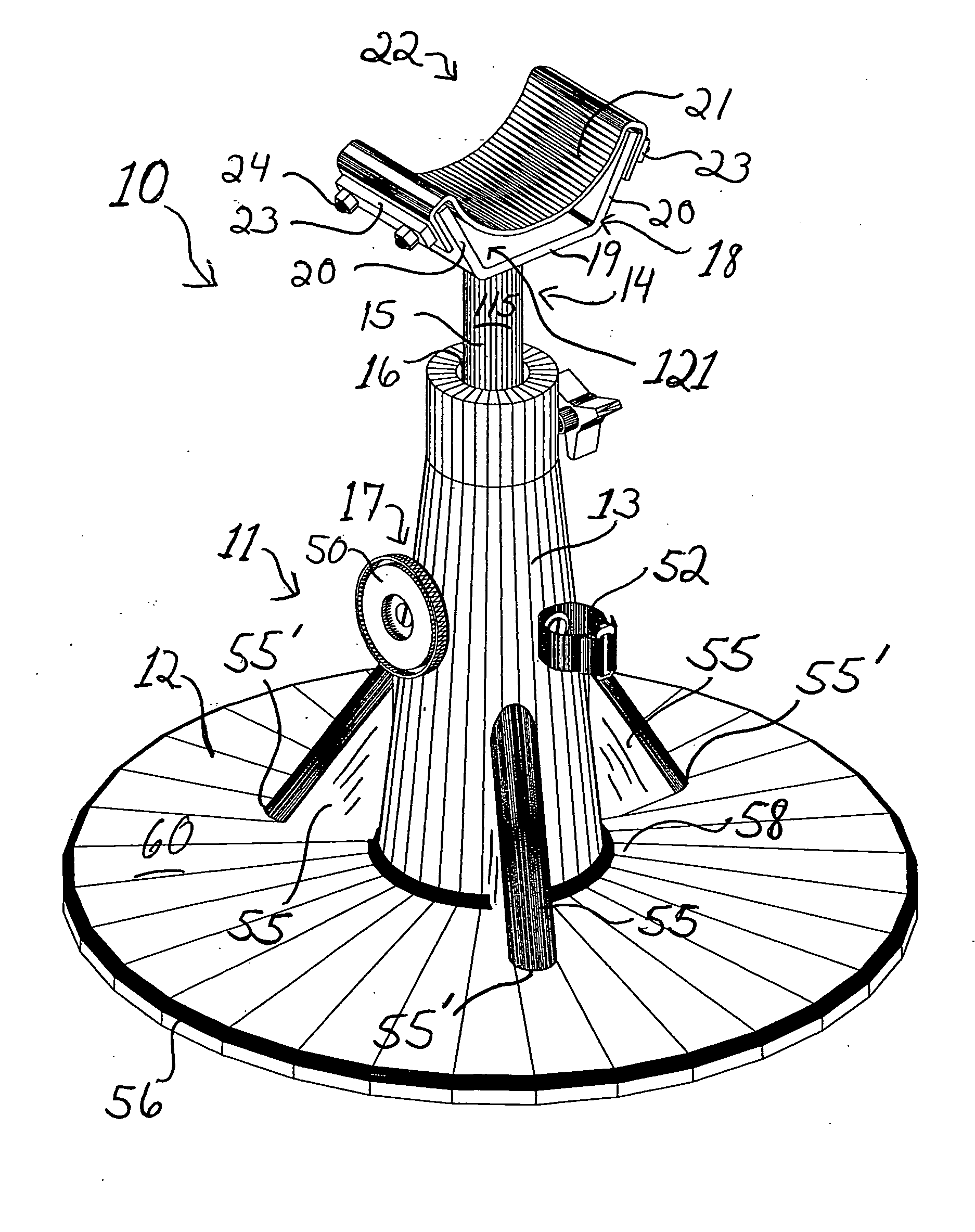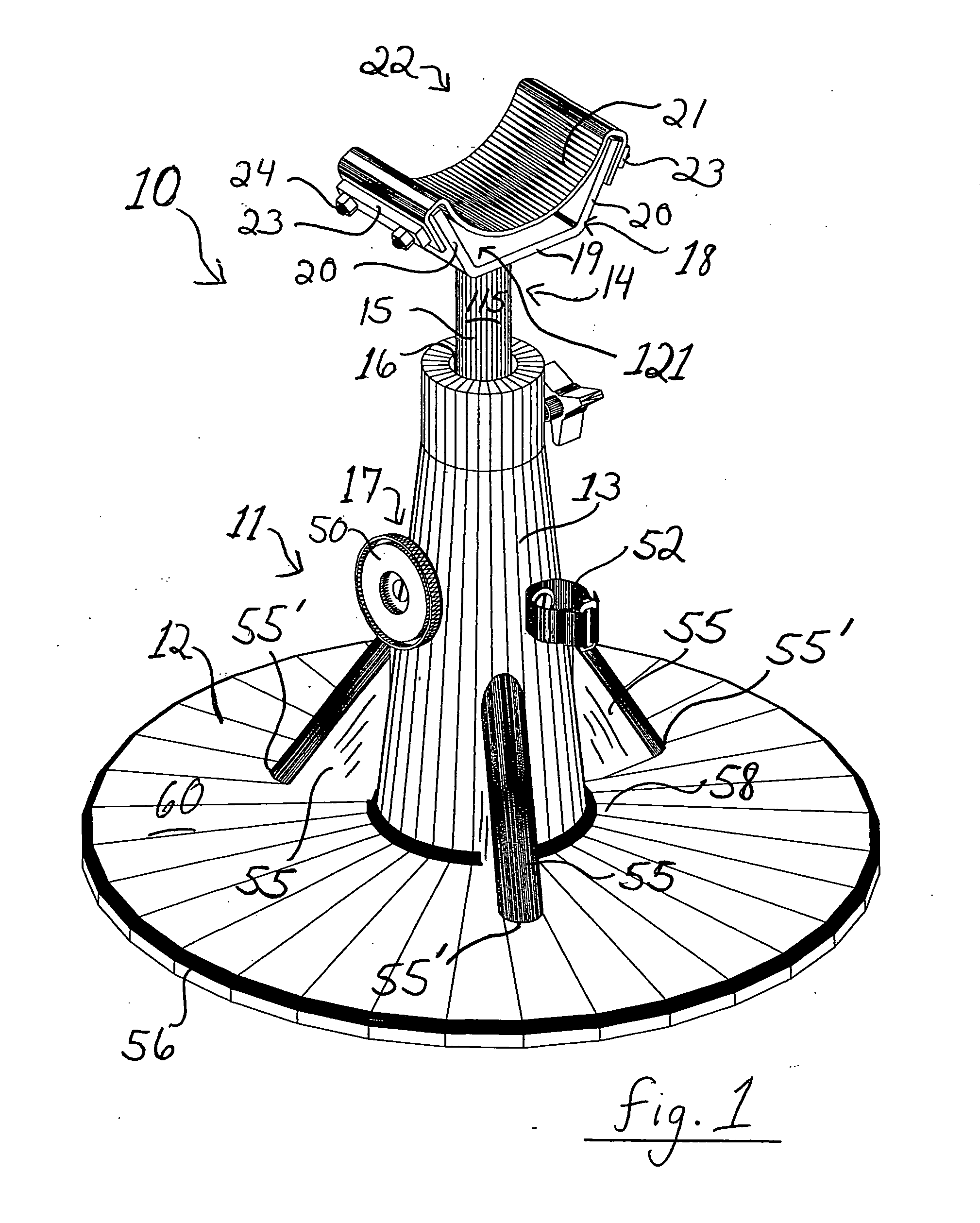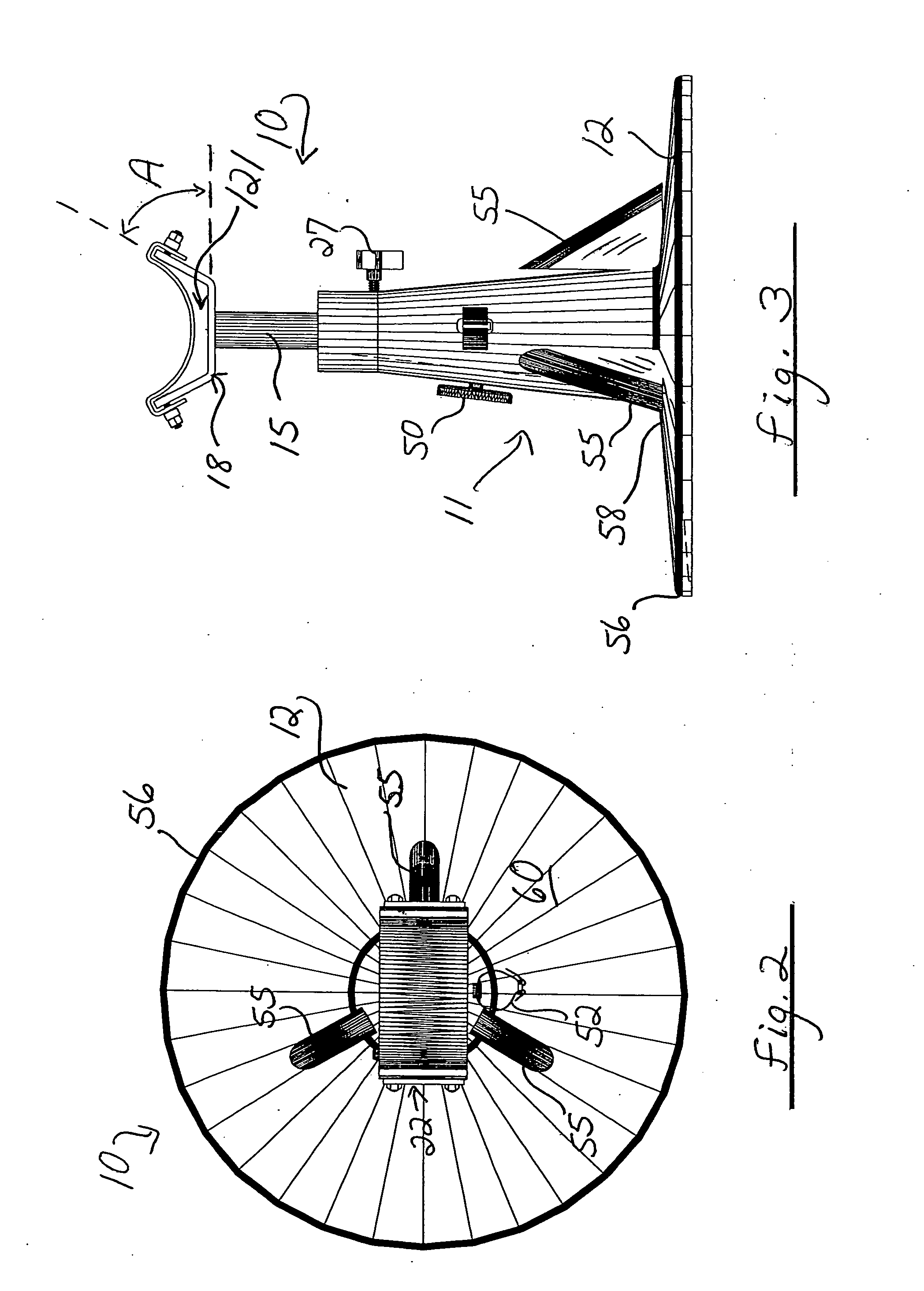Upright stand
a technology for uprights and supports, applied in the field of uprights, can solve the problems of not being able to adjust the length of uprights to accommodate the necessary difference, affecting the stability of the uprights, etc., and achieves the effect of quiet and light weight, convenient use, and discharging energy from impa
- Summary
- Abstract
- Description
- Claims
- Application Information
AI Technical Summary
Benefits of technology
Problems solved by technology
Method used
Image
Examples
Embodiment Construction
[0026] Some, but not the only, embodiments of the invented stand are shown in detail in the Figures and generally designated as stand 10. Mainly by virtue of its broad base and its being made substantially of plastic, the stand 10 is stable when placed on a surface and also easily moveable to another position or location without significant noise. Of particular note is the quiet, non-frightening sound caused by sliding or otherwise moving the plastic base on a floor, table, or ground, in contrast to the frightening or irritating sound cause by a metal object scraping along or hitting such a surface. Alternatively, the stand may be anchored to a floor, table, or ground surface, by means of bolts or other fasteners, or by being integrally formed with said surface.
[0027] The broad, flat base is preferably nearly as wide in diameter as the upending support system is tall, that is, the flat base diameter preferably is about 75% to 130% of the height of the stand, depending mainly on how...
PUM
 Login to View More
Login to View More Abstract
Description
Claims
Application Information
 Login to View More
Login to View More - R&D
- Intellectual Property
- Life Sciences
- Materials
- Tech Scout
- Unparalleled Data Quality
- Higher Quality Content
- 60% Fewer Hallucinations
Browse by: Latest US Patents, China's latest patents, Technical Efficacy Thesaurus, Application Domain, Technology Topic, Popular Technical Reports.
© 2025 PatSnap. All rights reserved.Legal|Privacy policy|Modern Slavery Act Transparency Statement|Sitemap|About US| Contact US: help@patsnap.com



